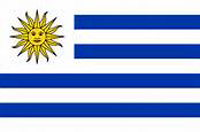
MONTEVIDEO, Uruguay (WJC)–Uruguay’s government has confirmed reports that Iranian diplomat Ahmed Sabatgold, 32, had left the country after being suspected by Uruguayan security forces of collecting intelligence about a building housing Israel’s new embassy in Montevideo since December, and helping to plant a bomb nearby.
Sabatgold served as a political adviser in the Iranian Embassy in the Uruguayan capital and is under suspicion of being involved in placing an explosive device near the new Israeli Embassy last month.
After hours of silence from Uruguayan President Jose Mújica and Foreign Minister Luis Almagro, the country’s foreign and interior ministries issued a joint statement that shed some more light on what looks like continued Iranian attempts to collect intelligence in preparation for an attack on the Israeli Embassy in Montevideo. The statements denied earlier newspaper reports thatSabatgold was expelled by Uruguay, but had left voluntarily.
On 8 January 2015, a small explosion happened not far from a building in Montevideo on the ninth floor of which the Israeli Embassy is located. Police forces arrived and searched the area, finding a small device that had only partly detonated. The building was evacuated and the device neutralized. Even though the device was far from the building, officials in Jerusalem believe it was an attempt to harm the embassy or gauge its security preparedness, according to the newspaper ‘Haaretz‘.
Investigations carried out by Uruguay’s intelligence services after the discovery of the explosive device yielded information pointing to a possible involvement of someone at the Iranian Embassy. The Uruguayan government turned to Iran’s government for information and after consultations between the two, it was decided to expel a senior diplomat stationed the embassy. However, it was decided to keep a low profile concerning the affair and not to publicize the diplomat’s expulsion.
The joint statement said the discovery of the bomb was preceded by another, no less serious event. On 24 November 2014, an unknown person placed a suitcase near the building that housed the old Israeli Embassy in Montevideo. Security guards from the embassy and the local police were called to the site and examined the suspicious suitcase – and discovered it was empty. It is now assumed that this was an attempt to test the embassy’s security arrangements, an assumption that was later reinforced by footage from security cameras in the area.
The person who placed the suitcase was not seen in the clips, but a car with diplomatic license plates was filmed parked at the time not far from the embassy, with an unidentified man inside. The video was examined Uruguayan security forces and foreign ministry officials, as well as the Israeli embassy’s security staff. It was quickly ascertained that the car belonged to the Iranian embassy, and the person inside was an Iranian diplomat.
Uruguay’s foreign minister made it clear to the Iranian ambassador that even though there was no proof that Sabatgold had been involved in placing the suitcase near the Israeli diplomatic mission, his presence nearby at the same time raised serious suspicions.Almagro made it clear that this was an unacceptable incident, and if it happened again Uruguay’s response would be serious.
The Iranian ambassador then informed Foreign Minister Almagro that Sabatgold had left the country the day before, since coincidentally he had completed his duties in Uruguay.
Sabatgold was under suspicion by Uruguayan security forces even before the bomb was placed near the Israeli Embassy, and was considered problematic. The newspaper ‘El Observador‘ reported that he was a well-known Holocaust denier and often spoke out against Jews. Sabatgold’s career was at its peak during the tenure of former Iranian president Mahmoud Ahmadinejad, when he served as the translator for conversations and meetings between Ahmadinejad and then-Venezuelan President Hugo Chávez.
*
Preceding provided by the World Jewish Congress